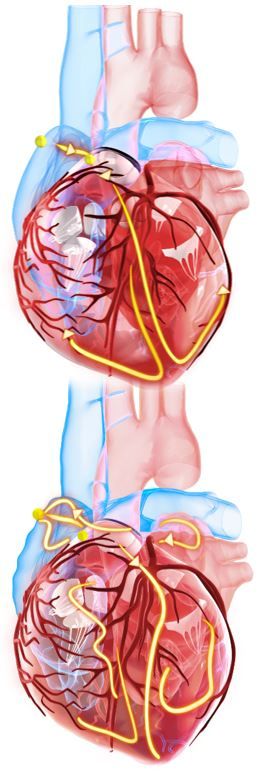- Clinical Technology
- Adult Immunization
- Hepatology
- Pediatric Immunization
- Screening
- Psychiatry
- Allergy
- Women's Health
- Cardiology
- Pediatrics
- Dermatology
- Endocrinology
- Pain Management
- Gastroenterology
- Infectious Disease
- Obesity Medicine
- Rheumatology
- Nephrology
- Neurology
- Pulmonology
SGLT2 Inhibitor Therapy May Reduce Risk of Atrial Arrhythmias in T2D
A recent meta-analysis suggests some sodium glucose cotransporter-2 inhibitor agents may protect against atrial and ventricular arrhythmias as well as sudden cardiac death in type 2 diabetes patients.

Patients with type 2 diabetes (T2D) taking sodium glucose cotransporter inhibitors (SGLT2i) experienced a significant reduction in the risk of incident atrial arrhythmias, according to results of a recent meta-analysis published in the journal Heart Rhythm.
Originally indicated for treatment of hyperglycemia in patients with T2D, SGLT2i therapy also has been shown to reduce hospitalizations for, and death from, heart failure (HF) but there is a dearth of information on the effect on arrhythmia expression. To begin to address the knowledge gap, authors led by Gilson C. Fernandes, MD, division of cardiology, University of Miami Miller School of Medicine, conducted a meta-analysis to investigate the association of SGLT2i use in patient with T2D or HF.
Investigators searched PubMed and ClinicalTrials.gov for randomized double-blind trials comparing SGLT2is with placebo or active control in adults with T2D or HF. Primary outcomes of the analysis were incident atrial arrhythmias, ventricular arrhythmias (VA) and sudden cardiac death (SCD [3 specified components: sudden cardiac death, sudden death, cardiac arrest]).
Thirty-four randomized trials were included, 25 placebo- and 9 active-controlled, comprising 63 166 patients; 35 883 were taking SGLT2i vs 27 273 controls; mean age ranged from 53 to 67 years and 63% were men. The study population in all but 1 trial was primarily patients with T2D. There was 1 trial that included HF patients. The SGLT2i medications analyzed were canagliflozin, dapagliflozin, emapgliflozin, and ertugliflozin. Follow-up periods ranged from 24 weeks to 5.7 years.
The analysis found cumulative incidence of primary outcome events to be low, with values per 1000 patient years as follows:
- Atrial arrhythmias 3.6
- Ventricular arrhythmias 1.4
- Sudden cardiac death 2.5
Fernandes et al report a significant reduction in risk of incident atrial arrhythmias (OR, 0.81, 95% CI 0.69-0.95; P=0.008) and the “SCD” component of the SCD outcome (OR, 0.72, 95% CI 0.54-0.97; P=0.03) with SGLT2i therapy vs controls. There was no significant difference between SGLT2i and placebo groups in incident VA (OR, 0.85, 95% CI, 0.66-1.11; P =.23) or in the composite SCD outcome (OR, 0.87, 95% CI, 0.72-1.05; P =.14).
Results of subgroup analysis looking at individual SGLT2is and risk of arrhythmias showed that dapagliflozin significantly reduced the risk of events, canagliflozin was associated with a numerically lower rate, and empagliflozin was not associated with any difference. A low number of reported events with ertugliflozin made it "unsuitable for analysis."
Based on their findings the authors conclude that "Prospective trials are warranted to confirm the antiarrhythmic effect of SGLT2i and whether this is a class or drug-specific effect."
image ©TuMeggy/stock.adobe.com
